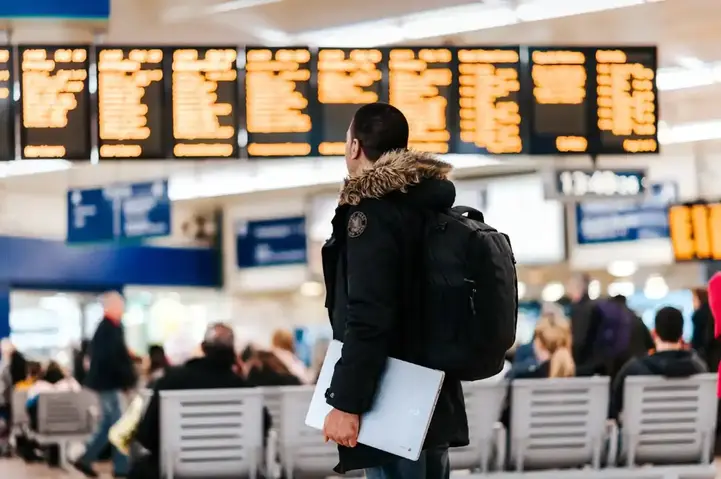Budget travel: how to enjoy the world on a budget
In a world of constant change and a desire to explore, travel remains a dream of many. However, with the high cost of travel, this dream seems unattainable to many people. Fortunately, budget travel is a breath of hope that this dream can be realized without having to spend large sums. In this article, we will reveal to you the secrets that enable you to travel at the lowest costs, while enjoying unforgettable experiences and learning about the diverse cultures of the world.
Show key points
- Budget travel proves that exploring the world can be both affordable and richly rewarding, regardless of income level.
- Smart planning, flexibility in dates, and researching lesser-known but beautiful destinations are key to economical travel.
- Affordable countries like Poland, Thailand, Vietnam, and Egypt offer vivid cultural experiences without high expenses.
- ADVERTISEMENT
- Booking flights and accommodations early, comparing prices, and joining loyalty programs can lead to significant savings.
- Choosing hostels, Airbnb stays, or rentals over luxury hotels helps cut accommodation costs while enhancing local interactions.
- Eating at local markets, street food stalls, or cooking your own meals lets you enjoy authentic cuisine without overspending.
- Embracing budget travel encourages cultural awareness, spontaneity, and a deeper appreciation for meaningful experiences.
Let's start this exciting journey together to discover how travel can be accessible and enjoyable for everyone, regardless of budget size.
The concept of budget travel

Some believe that traveling on a budget means sacrificing comfort and pleasure, but this is not always true. Economy travel simply means being smarter in your choices and knowing how and where to spend your money. We'll start by refuting common myths and give you facts that will help you make the most of your budget.
Recommend
Economy travel is not only about looking for offers and discounts, but also about good planning, flexibility and willingness to try new things. We'll explore how advance planning and flexibility in travel and stay dates can open doors for unforgettable and affordable experiences.
Planning your trip – the first step towards smart travel

Determining economic destinations
Traveling does not always mean going to the most famous or most expensive places. In fact, some of the most beautiful destinations in the world are also the most expensive. However, with a little research and flexibility, you can discover wonderful places that are characterized by their natural beauty, rich culture and affordable costs.
Start by identifying destinations that fit your budget. Use the Internet to search for countries or cities that offer premium travel experiences for less. Search travel blogs, travel forums, and rating sites for recommendations from other travelers. You can also take advantage of comparison sites to find the best deals for flights and accommodation.
Feel free to look outside the box and choose unconventional destinations. You may find that some lesser-known places offer more authentic and interactive experiences with locals, giving you a chance to discover culture and traditions in a deeper way.
Examples of budget travel destinations
1. Poland: Poland is considered a European economic tourist destination, attracting large numbers of tourists annually. It is characterized by its various tourist attractions and cheap hotels, and the period between April and October is the best to visit.
2. Istanbul - Turkey: Istanbul offers a great tourist experience at a low cost, with hotels with distinguished service and reasonable prices, and the cost of food does not cost much.
3. Thailand: Thailand is famous for being a low-cost tourist destination compared to European countries, with affordable accommodation, internal transportation, and food.
4. Jordan: Jordan offers a rich tourist experience with rich cultural activities and landmarks, and is considered one of the economic destinations that do not need a lot of money.
5. Cairo - Egypt: Cairo is an important and economic tourist destination, especially in the summer when hotel prices drop significantly.
6. Vietnam: Vietnam offers a culturally rich tourist experience and picturesque natural areas, with low cost of accommodation and food.
7. Philippines: The Philippines is an excellent tourist destination for relaxation and diving, with diverse landscapes, caves and beaches rich in aquaculture.
These destinations offer rich and varied tourism experiences for travelers looking for cost savings and those wishing to explore the world on a budget.
Savings strategies before the trip

Planning ahead for your trip can save you a lot of money and effort. Before you start your trip, there are several strategies you can follow to ensure economical and enjoyable travel:
1. Early search: The earlier you start your search, the higher your chances of finding better offers. Whether it's for flights, accommodation, or even activities, early booking can offer you great discounts.
2. Flexible dates: If you are flexible on your travel dates, you can take advantage of discounted rates during the recession seasons. Avoid traveling in peak tourist seasons where prices skyrocket.
3.Price comparison: Use comparison sites to check flight prices, hotels, and travel insurance. Be sure to read reviews and benefit from other travelers' experiences.
4. Smart packing: Avoid excess baggage charges by packing your bag smartly. Plan what you really need and use space-saving packaging techniques.
5. Travel insurance: Getting good travel insurance can save you money in case of an emergency. Compare the plans and choose one that suits your needs and budget.
6. Registration for loyalty programs: If you travel a lot, enrolling in loyalty programs for airlines or hotels can provide you with points that can be redeemed for free flights or stays.
Smart Bookings – How to Save Money on Transportation and Accommodation

Tips for booking cheap flights
Flying can make up a big part of travel costs, but there are ways to reduce these costs:
Use search engines for flights: There are many sites that compare flight prices from different airlines, helping you choose the cheapest.
Be flexible with travel dates: Weekday trips are usually cheaper than on weekends. Travel in peak seasons is also more expensive.
Book early or late: Booking months before the trip or at the last minute can save you a lot.
Use points and rewards: If you have cumulative points from loyalty programs, you may be able to use them to get discounted or even free flights.
Choosing the right accommodation: from hotels to folk houses
Accommodation is the other part that can be expensive, but there are options to save money:
Find offers: Online booking sites often offer special offers and discounts on accommodation.
Hostel accommodation: If you are traveling alone or with a small group, hostels can be a good budget option.
Accommodation with locals: Platforms like Airbnb allow you to stay in the homes of locals and are often cheaper than hotels.
Consider renting apartments: If you plan to stay longer somewhere, renting an apartment can be more economical than staying in a hotel.
Food and drink: how to eat on a budget

When traveling, food can be one of the biggest expenses, but with the right planning, you can eat well without spending too much:
1. Local markets: Visiting local markets is not only a rich cultural experience, you can also buy fresh produce at low prices to prepare your meals.
2. Self-cooking: Choose accommodation that offers a kitchenette so you can cook your meals, which saves you a lot compared to eating in restaurants.
3. Street meals: Eating from local food trucks or stalls can be delicious and economical, and is also an opportunity to try traditional dishes.
4. Snacks: Always carry snacks and water with you while walking around to avoid buying expensive food from tourist cafes and restaurants.
5. Special offers: Look for restaurants that offer special offers such as 'happy hour' or discounts at certain times of the day.
6. Plan meals: Plan your meals in advance and avoid eating outside frequently, especially in tourist cities where prices are high.
7. Sharing meals: If you're traveling with others, consider sharing meals to reduce cost and try a variety of dishes.
8. Subscriptions and cards: Some cities offer tourist cards that include discounts on restaurants, so be sure to check these options.
We've come to the end of our journey in the world of low-cost travel, where we explored how careful planning and smart choices can open the doors of the world without having to spend wealth. We've seen that travel isn't about how much money you spend, it's about the experiences you live and the memories you make.
Economy travel is more than just saving money; it teaches us how to appreciate the value of simple things, how to connect with different cultures, and how to live in the moment. Let's pack, plan wisely, and embark on our next adventure with confidence, knowing that the world is full of wonders waiting to be discovered, regardless of budget size.








